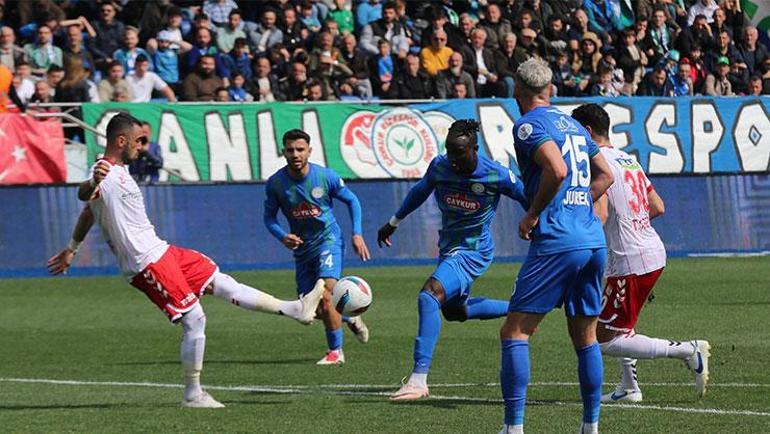U.S. Tariff on Brazilian Imports: Crisis or Possibility?
Table of Contents
- 1. U.S. Tariff on Brazilian Imports: Crisis or Possibility?
- 2. the 10% Surcharge: A Double-Edged Sword
- 3. Strengthening Alliances: Mercosur and Beyond
- 4. Repositioning Brazil: Adding Value Beyond Agriculture
- 5. Brazil’s Response: Dialog and Reciprocity
- 6. A Call to Action: Transforming Crisis into Opportunity
- 7. Addressing Counterarguments
- 8. What are the potential long-term economic impacts of the U.S. tariff on Brazil, and how can Brazil mitigate these impacts?
- 9. U.S.-Brazil Trade Tensions: An Interview wiht Dr. Isabella Oliveira
- 10. Interview Introduction
- 11. Initial Impact of the U.S.tariff
- 12. Opportunities amidst Challenges
- 13. Brazil’s Strategic Response
- 14. Long-Term Prospects and Diversification
- 15. A Call for Action
- 16. Reader Engagement
Published April 3, 2025
the 10% Surcharge: A Double-Edged Sword
Washington D.C.– On April 3, 2025, the United States levied a 10% surcharge on all goods imported from Brazil, a move that sent ripples through the global trade community. While seemingly a blow to Brazilian exporters, some economists believe this could paradoxically offer new opportunities for the South American giant. The key,according to analysts,lies in Brazil’s ability to strengthen its existing trade alliances and forge new ones.
The initial impact of the tariff is undeniably negative. U.S. importers, from major retailers to small businesses reliant on Brazilian goods like coffee, sugar, and certain manufactured components, now face higher costs. this, in turn, is highly likely to be passed on to American consumers in the form of increased prices.
However, amidst this disruption lies a potential silver lining. As economist Adalmir Marquetti of the Catholic University of Rio Grande Do Sul stated: “The United States’s decision to impose a 10% surcharge on brazilian imports could paradoxically offer new opportunities in the south American country,provided that its trade alliances are strengthened.”
Strengthening Alliances: Mercosur and Beyond
Marquetti, in an interview with TV Brasil, emphasized the urgency of accelerating trade negotiations between Mercosur (the South American trade bloc comprising Brazil, Argentina, Uruguay, and Paraguay) and the european Union. A strengthened trade agreement with the EU would provide Brazilian exporters with a significant alternative market,mitigating the impact of the U.S. tariff.
The Mercosur-EU trade agreement has been under negotiation for two decades, facing numerous hurdles including agricultural subsidies and environmental concerns. The U.S. tariff could serve as a catalyst to finally overcome these obstacles.
Furthermore, the Brazilian government is actively pursuing diversification of its trade partners. President Lula’s recent tour of Japan and vietnam signals a strategic shift towards Asia, a region with burgeoning demand for Brazilian products. This proactive approach is vital for reducing Brazil’s reliance on the U.S. market.
Repositioning Brazil: Adding Value Beyond Agriculture
Beyond simply finding new markets for existing products, the U.S.tariff presents an opportunity for Brazil to restructure its export economy. Marquetti argues that the surcharge should encourage Brazil to expand its export offer to products with higher added value, thus reducing its deficit in the service sector.
“According to him, this surcharge could be an opportunity for Brazil to reposition itself by expanding its export offer to products with higher added value, thus reducing its deficit in the service sector.”
This means investing in education, technology, and innovation to develop industries that can compete on a global scale in sectors such as technology, manufacturing, and specialized services. For example, the Brazilian aerospace industry, centered around Embraer, could serve as a model for diversification.
| Sector | Opportunity | U.S. Implication |
|---|---|---|
| Technology | Increase software development and IT services exports | U.S. companies could outsource more tech jobs to Brazil |
| Manufacturing | Develop specialized manufacturing capabilities | Reduced reliance on China, potential for nearshoring |
| Services | Expand tourism and financial services | More U.S. tourists visiting Brazil, increased financial ties |
Brazil’s Response: Dialog and Reciprocity
The Brazilian government is adopting a multi-pronged approach to address the U.S. tariff. While prioritizing dialogue with Washington in hopes of reaching a negotiated settlement, brazil is also prepared to take a firm stance to protect its economic interests.
In addition to diplomatic efforts, the Brazilian Chamber of Deputies has adopted a bill establishing a principle of commercial reciprocity.This legislation allows Brazil to apply retaliatory measures against countries that impose unfair restrictions on its exports.
This principle of reciprocity is a common tool in international trade disputes. The U.S. itself has used tariffs and other trade barriers to protect its own industries. Brazil’s move signals its willingness to play hardball if necessary.
A Call to Action: Transforming Crisis into Opportunity
The U.S. tariff presents a significant challenge to the Brazilian economy.However, it also provides a unique opportunity for Brazil to modernize its economy, diversify its trade relationships, and become a more competitive player on the global stage.
As Marquetti concludes, for Marquetti, this crisis can be transformed into an opportunity: beyond the agricultural sector, Brazil must use this situation as a lever to increase its industrial and technological exports.
The coming months will be crucial in determining whether Brazil can successfully navigate this challenging period and emerge stronger as an inevitable result. For the U.S., the tariff raises questions about its trade policy and its impact on American consumers and businesses.
Addressing Counterarguments
Some might argue that Brazil’s reliance on commodity exports makes diversification unrealistic in the short term.Others may suggest that retaliatory measures could escalate into a full-blown trade war, harming both countries.
However, proponents of diversification argue that it is a necessary long-term strategy for Brazil’s economic stability and resilience.While retaliatory measures carry risks, they can also be a powerful deterrent against unfair trade practices. The key is to strike a balance between assertive action and constructive dialogue.
What are the potential long-term economic impacts of the U.S. tariff on Brazil, and how can Brazil mitigate these impacts?
U.S.-Brazil Trade Tensions: An Interview wiht Dr. Isabella Oliveira
Archyde – april 3, 2025
Interview Introduction
Archyde News is pleased too welcome Dr. Isabella Oliveira, a leading economist specializing in international trade at the Getulio Vargas foundation in São Paulo. Dr. Oliveira, thank you for joining us today to discuss the recent U.S. tariff imposed on Brazilian imports.
Dr. Oliveira: Thank you for having me. It’s a critical moment for the Brazilian economy, and I’m happy to share my insights.
Initial Impact of the U.S.tariff
Archyde: The 10% surcharge has certainly raised eyebrows.What’s your immediate assessment of the impact on Brazil?
Dr. oliveira: The short-term effects will be negative, no doubt. we’ll see higher costs for Brazilian exporters, potentially impacting sectors like steel and chemicals, as the documents say (“The resulting tariff hikes in the steel and chemical sectors of the economy”). This could lead to a decrease in export volumes and, consequently, economic growth. Also, Brazil’s exporters of capital goods, IT and Telecom goods are likely to be affected (“The Brazil ex-tarifário regime allows companies to import capital goods, details technology, and telecommunications goods at a temporarily reduced rate or full exemption if they…”).
Opportunities amidst Challenges
Archyde: Though,the article suggests this could also present opportunities. Can you elaborate?
Dr. Oliveira: Absolutely. While it’s a challenge, it’s also a catalyst for change. Brazil must strengthen its existing alliances, particularly Mercosur’s trade agreement with the EU, which as the article mentions may finally have a chance to overcome the obstacles. Diversifying trade partners is also crucial, like President Lula’s moves toward Asia to reduce dependency on the US market. In all, Brazil must act to develop more products with higher added value, with greater investment in research and advancement.
Brazil’s Strategic Response
Archyde: What steps is the Brazilian government taking to address this?
Dr. Oliveira: The government is pursuing a multi-pronged approach. Dialog with the U.S. is a priority, of course. Together, the Chamber of deputies is considering commercial reciprocity, which could enable Brazil to take retaliatory measures. Brazil is not afraid to play hardball if necessary.
Long-Term Prospects and Diversification
Archyde: Looking ahead, how can Brazil successfully navigate this situation?
Dr. Oliveira: The key is diversification and modernization.Brazil must enhance its focus beyond agriculture and develop sectors like technology, manufacturing, and services.The aerospace industry serves as an example of industries Brazil may expand to. This will reduce vulnerability to future trade shocks and boost economic resilience. It can also take advantage of the “ex tarifario” regime, to make it more competitive.
A Call for Action
Archyde: Dr.Oliveira, what one piece of advice would you give to businesses and policymakers?
Dr. Oliveira: Embrace that this is a turning point.Transform this challenge into an chance in order to increase industrial and technological exports. It is essential to do it.
Reader Engagement
Archyde: This has been a very insightful conversation. Thanks to Dr. isabella Oliveira for her insights. We’d like to hear from our readers: Do you believe Brazil can successfully transform this trade challenge into an opportunity, as Dr. Oliveira suggests? share your thoughts in the comments below!








